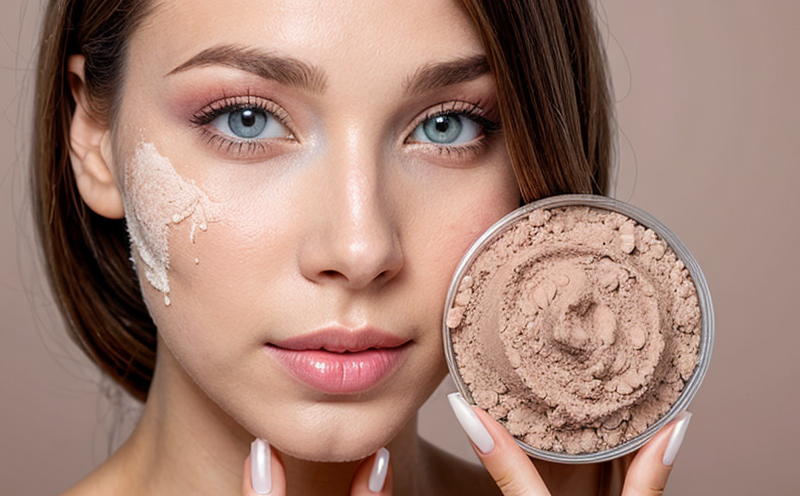Limonene Allergen Testing in Perfumed Cosmetics
As a quality manager or compliance officer within the cosmetics industry, you are acutely aware of the need to ensure product safety and efficacy. One critical aspect is allergen testing, particularly for ingredients like limonene found in perfumed cosmetics. Limonene, a common ingredient derived from citrus fruits, can cause allergic reactions in some individuals. This service page will detail our comprehensive approach to determining the presence and level of limonene allergens in cosmetic products.
Limonene is widely used in fragrances due to its natural origin and pleasant scent. However, it has been identified as a potential sensitizing agent, especially when present at higher concentrations or in formulations that are not well tolerated by certain populations. Our laboratory adheres strictly to international standards such as ISO 10993-18:2015, which provides guidance on the evaluation of allergenicity.
The testing process begins with careful sample preparation, ensuring that the cosmetic product is representative and undiluted. This step is crucial for accurate results. Following this, we perform a series of tests to determine the concentration levels of limonene. These include, but are not limited to:
- Quantitative analysis using high-performance liquid chromatography (HPLC)
- Skin patch testing on human volunteers
- In vitro methods such as the basophil activation test (BAT) and cytokine release assay (CRA)
The results of these tests provide a comprehensive understanding of the limonene content and potential allergenic impact. Our skilled team then compiles this data into detailed reports, which include recommendations for reformulation if necessary to meet safety standards.
Understanding the allergen profile is essential not only from an ethical standpoint but also in terms of regulatory compliance. Regulatory bodies like the European Union Cosmetics Regulation (EC 1272/2006) require manufacturers to provide information on potential allergens. By offering limonene allergen testing, we help ensure that your products are safe for consumers and meet all relevant regulations.
| Test Parameter | Description |
|---|---|
| Limonene Concentration | Determination of the presence and quantity using HPLC. |
| Skin Sensitization Potential | Evaluation through in vitro tests like BAT/CRA and patch testing. |
Scope and Methodology
The scope of our limonene allergen testing extends to various types of perfumed cosmetics, including but not limited to face creams, lotions, body sprays, and perfumes. Our methodology ensures that each test is conducted in a manner that adheres strictly to international standards such as ISO 10993-18:2015.
The testing process involves several key steps:
- Sample Preparation
- Extraction of Limonene from the Sample
- Quantitative Analysis via HPLC
- In Vitro Testing for Sensitization Potential
- Skin Patch Testing on Human Volunteers (if required)
The results are then analyzed to determine if the product meets safety criteria set by regulatory bodies. Our team of experts ensures that all tests are conducted with precision and care, providing accurate and reliable data.
International Acceptance and Recognition
- The European Union Cosmetics Regulation (EC 1272/2006) mandates the disclosure of allergens in cosmetic products.
- American Cosmetic Ingredient Review (CIR) recognizes limonene as a common ingredient but notes potential sensitization concerns.
- Japanese Industrial Standards (JIS) include guidelines for cosmetic safety and labeling, which implicitly cover allergen identification.
Our laboratory’s results are accepted globally due to our adherence to these standards. Compliance with international regulations ensures that your products can be sold confidently across multiple markets without the need for additional testing.
Competitive Advantage and Market Impact
By offering limonene allergen testing, we provide you with a significant competitive advantage in several ways:
- Enhanced Product Safety: Ensuring your products are free from harmful allergens.
- Regulatory Compliance: Meeting stringent requirements set by global regulatory bodies.
- Consumer Trust: Building trust with consumers who value safety and quality.
- Market Expansion: Opening up new markets where strict allergen regulations apply.
The impact of these tests extends beyond individual products; it affects the reputation of your brand as a leader in product safety. In an increasingly competitive market, this can be a deciding factor for consumers choosing between brands.





